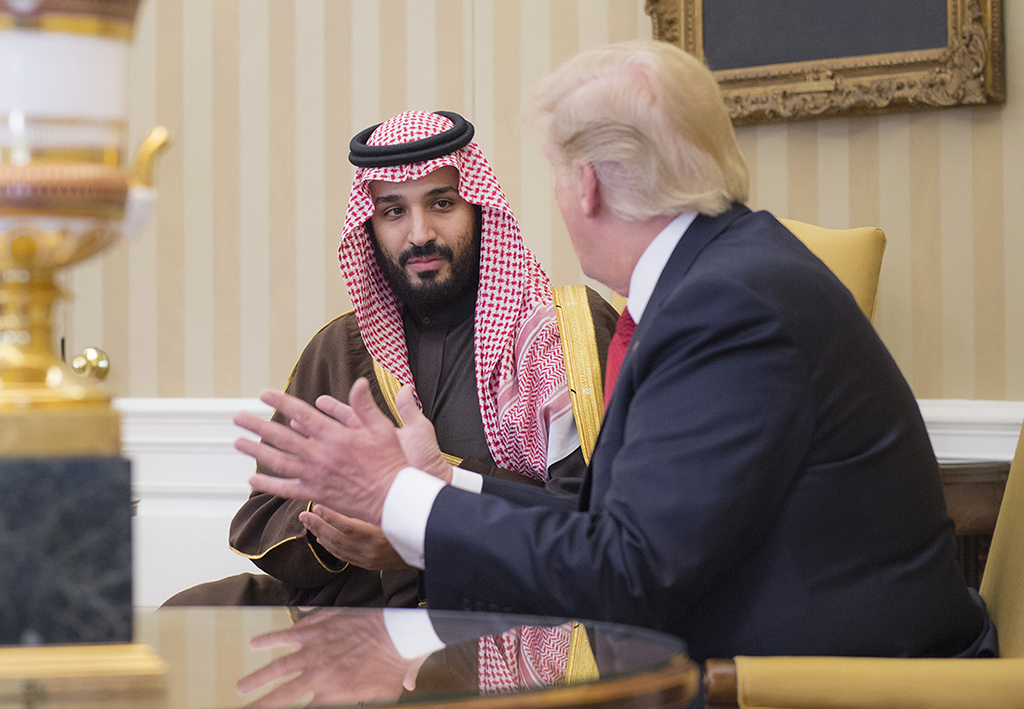
Forced restructuring of leadership in Saudi Arabia breaches tradition
It seems that a strong power struggle among the grandsons of King Abdulaziz ibn Saud will determine the future of the country. The killing of his two grandsons and the confiscation of financial assets of leading businessmen for sure will have implications for Saudi politics in the near future.
Share
audi Arabia is known for its traditionally apolitical society. As one of the most pro-status quo states in the Middle East, Riyadh has always supported conservative states and groups. Unlike other Arab countries, Saudi Arabia has not been influenced by global political waves, and more specifically, from the Arab Spring uprisings. The main instrument of the government's reaction to the Arab uprisings was the allocation of $37 billion, a similar reaction to previous steps undertaken by Riyadh when faced with domestic and international developments. Nevertheless, this was not the only instrument used by the Saudi government. As it tried to keep the wave of uprisings away from the Gulf, not only from Saudi Arabia, the Saudi government established a regional coalition, intervened in Bahraini political affairs and eventually suppressed demonstrations. As such, it succeeded at least in postponing the impact of the uprisings.
However, with the change of the administration in January 2015, many non-traditional developments followed one another. First, as soon as King Salman came to power in early 2015, he dismissed his half-brother Crown Prince Muqrin bin Abulaziz from his seat. In his place, he appointed his full-nephew Muhammad bin Nayef as crown prince – one of the strongest Sudairi princes.
Second, he changed the crown prince again last June, removing Nayef from the post and appointing his son Mohammad bin Salman. King Salman delegated all significant positions to his son. Thus, Mohammad bin Salman, as one of the youngest, most inexperienced and ambitious princes, became the strongest individual in the country by undertaking two strong positions of crown prince and defense minister.
Third, last week Salman appointed Mohammad bin Salman as chairman of the newly established anti-corruption committee. This last post enabled Mohammad bin Salman to accuse any potential challenger from the family and potential opposition of corruption. He initiated a campaign of mass arrests of princes, businessmen, bureaucrats and former government officials.
During the last operation, two leading princes lost their lives. Prince Mansour bin Muqrin, who was one of the advisers of the former Crown Prince Nayef, was killed in a helicopter crash. Since Muqrin was closely associated with the two old crown princes, there are many questions regarding his death. The other prince that was killed was Abdul Aziz bin Fahd, who was known for his anti-Israel and anti-Emirates views. It is claimed that he was killed when he resisted arrest.
Considering the arrest of two sons of the late King Abdullah – Mutaib and Turki – and liberal businessmen such as al-Waleed bin Talal, one can easily claim that the main intention behind all these moves is the consolidation of Mohammad bin Salman's personal power. However, these actions may have great impacts on the future of Saudi Arabia.
By arresting strong political and economic actors and freezing their financial assets, Mohammad bin Salman takes risks through the restructure of the Saudi leadership on a non-traditional road. Economic actors will lose confidence in the system since Mohammad bin Salman has frozen the financial assets of more than 1,000 businessmen. The result will be the increase in the outflow of capital from Saudi Arabia in the near future. That is, from now on, the domestic legitimacy of the Saudi regime will be questioned by some domestic power centers and this will leave the legitimacy of the regime more vulnerable than ever.
It seems that a strong power struggle among the grandsons of King Abdulaziz ibn Saud will determine the future of the country. The killing of his two grandsons and the confiscation of financial assets of leading businessmen for sure will have implications for Saudi politics in the near future.
This is the first time that the government threatens the lives and wealth of the influential personalities and families, so any action taken in the near future by Mohammad bin Salman will be determinant. So, at the time being it can be said that Saudi Arabia's future rests in the hands of the crown prince who has taken too many risks by deviating from the kingdom's traditional political discourse. If he cannot manage the pace of events in the country, the process may become self-destructive for him and for the Saudi state.
[Daily Sabah, 15 November 2017]
Tags »
Related Articles







